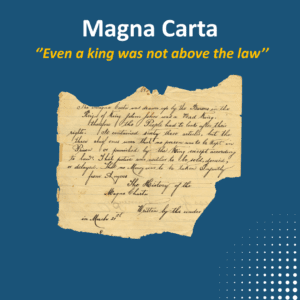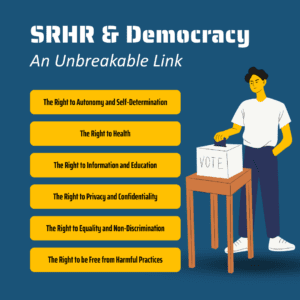A Beacon in the Haze: International Democracy Day 2025
It seems like yesterday when the United Nations General Assembly passed resolution ‘A/RES/62/7’ in 2007, which established the celebration of the International Day of Democracy on 15 September each year, encouraging governments to strengthen and consolidate democracy. From the Birth of Athenian Democracy in 508 BCE, which is often considered the foundational concept of ‘Rule by the people’, to the French Revolution and the Declaration of the Rights of Man and of the Citizen in 1789, we have indeed come a long way.

Even though there has not been any consensus regarding the theme of the International Day of Democracy in 2025 among all UN entities, some UN entities came up with a theme of their own for the day. While UNDP went forward with ‘From voice to action in a changing world’, the Inter-Parliamentary Union focused on achieving gender equality. This day is an opportunity to highlight the important role of citizens of every country in electing their representatives and the role of governments in upholding justice, peace, development, and human rights.
Rome was not built in a day, and neither was democracy. Some might, therefore, argue that democracy is not perhaps a destination but, in all its glory, a journey. This journey constantly encourages us to fight for a better democracy and to take a stand whenever we see the institutions of democracy fail. A legendary example would be the signing of the Magna Carta in 1215, a pivotal moment in English history, which introduced the revolutionary concept that even a king was not above the law.

But one might question themself, how successful have we been in realising the gap between democracy’s ideals and the lived realities of many people around the world? The realities are unfortunately harsh, as we see Palestine in shambles, Afghan women in chains, Uyghur Muslims getting persecuted, Rohingya refugees fleeing their country, and people of colour facing the brutalities of American police. The world has an overwhelming majority in agreement about the fact that all of these are impediments to humanity, and yet they persist. A healthy democracy depends on the well-being and freedom of its citizens, and in this regard, the realisation of Sexual and Reproductive Health and Rights (SRHR) is of great importance. These rights, which include access to contraception, comprehensive sex education, and safe abortion, are not just health issues; they are fundamentally about bodily autonomy and the ability of individuals, particularly women and girls, to make informed choices about their lives. When a state restricts these rights, it effectively limits a person’s control over their own body, future, and economic participation. Slowly, yet steadily, Afghan women are losing their fundamental rights. On one hand, we may question ourselves: had democracy been there, what would’ve happened? On the other hand, states with a major democratic presence have discriminated against demographics as well.

The recent “July Revolution” in Bangladesh serves as a stark reminder that the fight for democracy is an ongoing process, not a historical artefact. Beginning as a student movement in early June 2024 to protest a controversial government job quota system, the “Anti-Discrimination Student Movement” quickly evolved into a nationwide uprising, resulting in the fall of the previous regime. The International Day of Democracy reminds us of the famous quote by John Adams, ‘Remember, democracy never lasts long. It soon wastes, exhausts, and murders itself. There never was a democracy yet that did not commit suicide.”

But does that mean we stop being optimistic? If humanity did that, we wouldn’t have come so far, for at the end of the day, what truly matters is the never-ending effort to stop that suicide.

